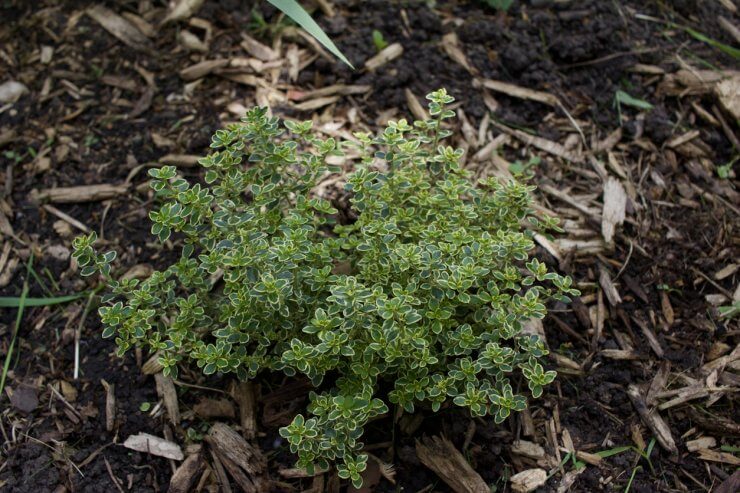
Thyme growing in rich soil
Due to its Mediterranean origins, thyme thrives on dry, sandy—even rocky—soil. Many gardeners believe thyme actually benefits from poor soil and a lack of water. For this reason, thyme makes an excellent choice for rock gardens and xeriscaping. If you have heavy, damp soil, either amend it thoroughly with sand, peat moss, and some organic matter such as compost to encourage drainage or plant your thyme in containers or amended raised beds.
Healthy thyme plants need minimal nourishment: a little compost in the spring and some watered-down fish emulsion or liquid seaweed every couple of weeks in the summer. If you don’t make your own compost you can buy bulk compost from most gardening supply stores. Try to find “certified compost” with the U.S. Composting Council’s Seal of Testing Assurance (STA)—their rigorous testing process and standards will ensure you get quality compost.
When it comes to companion planting thyme, here are some plants that thyme likes to share space with:
- Rosemary (especially in containers, as both plants have similar watering requirements)
- Strawberries
- Cabbages
- Tomatoes
- Eggplant
- Broccoli
- Brussels sprouts
- Potatoes (thyme can improve flavor and lure beneficial insects)
And here is a list of plants to keep away from your thyme, as they require more moist soil:
- Parsley
- Cilantro
- Tarragon
- Basil
- Chives
What type of soil do you use to grow your thyme? Do you use compost or fish emulsion? What are your best tips for creating optimal soil for your thyme? Please share your techniques with us.


 Previous
Previous

